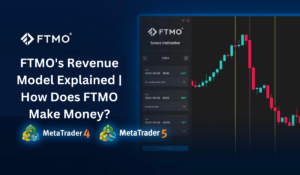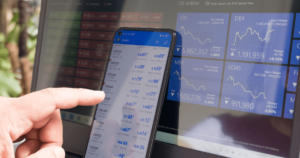Introduction:
In the realm of financial trading, one question that frequently arises is whether proprietary trading firms, often referred to as “prop firms,” are truly profitable and legitimate. To shed light on this matter, we delve into the world of prop trading and explore the potential risks and rewards associated with trading through these firms. So, let’s embark on a journey that will demystify the profitability and legitimacy of prop firms.
Understanding Proprietary Trading Firms:
Prop firms are financial establishments that offer traders the opportunity to utilize the firm’s capital for trading in exchange for a share of the trading profits. These firms can be found across the globe, spanning regions such as the United States, the United Kingdom, European Union nations, and the Middle East.
Profitability and Legitimacy:
Determining the profitability and legitimacy of prop firms is not a straightforward matter, as various factors come into play. The key considerations include the specific prop firm in question, the broker they employ, the trading restrictions imposed, and the fees traders must bear. Additionally, an individual trader’s level of expertise and experience also influences the potential benefits they can derive from engaging with a prop trading firm.
Evaluation Process:
Before traders can access a live trading account with a prop firm, they typically undergo an evaluation phase. During this stage, the firm tests the trader’s profitability on a demo account, setting targets that must be met before progressing to live trading. These targets may include achieving a profit target, adhering to maximum drawdown limits, and demonstrating consistency within specific trading timeframes.
Payouts and Markets:
Once a trader successfully passes the evaluation process, they are granted a live trading account with a predetermined balance. Prop firms usually have policies in place regarding profit payouts, allowing traders to select the frequency of payouts and ensuring prompt processing of payout requests. Moreover, prop firms often provide access to a range of markets, including Forex, metals, equities, and cryptocurrencies.
Pros and Cons:
Trading with a prop firm presents both potential rewards and risks. On the positive side, prop firms offer traders the opportunity to access additional capital, thereby increasing their profit potential. The structured environment provided by these firms, including profit targets and risk management rules, can contribute to traders’ success. Furthermore, prop firms often offer comprehensive support in the form of online education and performance coaches.
However, it is essential to consider the potential risks. Some prop firms may impose trading restrictions that may not align with a trader’s preferred trading style. Broker restrictions may also be a concern, as traders are typically required to use the prop firm’s designated broker. Additionally, the psychological impact of handling larger account balances may pose challenges for some traders.
Conclusion:
In conclusion, prop firms can be an appealing avenue for traders seeking to amplify their profit potential. The profitability and legitimacy of these firms depend on various factors, including the specific firm, broker partnerships, trading restrictions, and the trader’s own capabilities. By carefully considering the pros and cons, traders can make informed decisions about whether engaging with a prop firm aligns with their trading goals and preferences.
Remember, success in trading ultimately hinges on a combination of skill, knowledge, and adaptability. So, if you choose to explore the world of prop firms, be prepared to embrace the opportunities and challenges that lie ahead.








